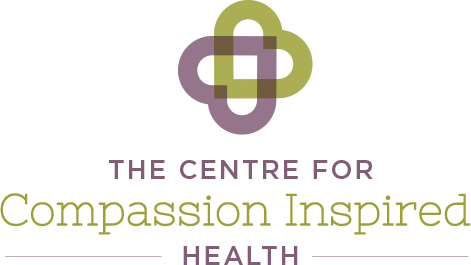Some people wake up famished and need to eat right away and others need a few hours to fully wake up before they can even think about food. While it is important to listen to your body, it is also important to eat something within a few hours of waking. Studies show that people who eat breakfast live longer and healthier lives and are better able to manage their weight. If you just can’t tolerate the thought of eating breakfast, take a look at what you were eating the night before. Late night eating doesn’t get easily digested while you are sleeping. It would be better to cut back on your evening eating and wake up deliciously hungry for some morning fuel.
Whenever you decide to eat breakfast, what is the most nutritious way to start the day?
The body needs a balance of some protein, healthy fats, fiber and complex carbohydrates every few hours to keep your energy and your blood sugar stable. Some people do better having smaller snacks throughout the day. Others do better with three square meals. There is no right or wrong – it is just about finding what works best for you. This may require some experimentation.
You can’t go wrong with a hot multigrain high fiber cereal to start the day. Try some steel cut oats or Bob’s Red Mill Gluten Free Mighty Tasty Hot Cereal. (You can even layer some dried fruit, cinnamon, steel cut oats and water in your slow cooker the night before and wake up to a heavenly slow cooked breakfast). Add some maple syrup or dried fruit, ground flax or hemp and a dollop of yogurt. If that seems like too much, try Nature’s Path Organic Instant Hot Cereal packages and just add hot water and stir. Or go for a natural multigrain cold cereal, granola or muesli with fortified milk or alternative beverage, dried fruit and/or berries. Try to get about 10 grams of fibre for breakfast.
1 cup multigrain cereal: 7 – 10 gm
1 piece fruit/1/4 cup naturally dried fruit: 3 – 5 gm
2 slices high fiber bread: 5 – 10 gm
High energy people might like some whole grain toast (wheat free if necessary) with nut butter and 100% fruit spread.
If you can’t stomach a bowl of cereal or toast, consider a smoothie made with protein powder, frozen fruit and juice/milk. Add some ground flax/hemp.
On weekends or special occasions, treat yourself with brunch type foods – omelets, bacon (nitrate free, organic), eggs, pancakes, waffles, croissants, cinnamon buns. They can be part of a healthy diet occasionally when made from organic, whole grain, natural ingredients. But they really aren’t ‘everyday’ foods.
What about the morning cuppa?
You are either for it or against it but the research shows that caffeine can be good for some people in some situations some of the time.
There is fairly convincing evidence that people who drink coffee regularly have a lower risk of developing Parkinson’s Disease and gallstones. Nice to know. And that caffeine improve alertness, reaction time, mental performance and overall mood. One large US study showed that people who drank at least two cups of coffee a day were 60% less likely to commit suicide than those who drank none! Most athletes know that caffeine can help the body burn more fat and improve their aerobic physical endurance. People who drink 200 to 600 mg of caffeine before running, jogging,swimming or cycling can last longer that those who don’t. Also caffeine is great for headaches – it acts as a mild painkiller by causing blood vessels to constrict.
Black tea has more caffeine than coffee by weight only – a cup of black tea generally has half the caffeine of a cup of coffee. Green tea does contain less caffeine and white tea has only a trace. All tea contains antioxidants – but the green and white tea is highest. Herbal teas generally don’t contain any caffeine.
Before you go running for another cuppa though, think about the coffee you are choosing. Coffee is one of the most highly contaminated crops in terms of pesticides. For your health’s sake and for the safety of the people who are growing and harvesting the coffee beans, choose only fairly traded organically grown coffee.
And for some people, it’s just not a good idea. Caffeine interferes with the brain’s natural sleep regulator and will disturb sleep if consumed within three to five hours of bedtime. And coffee is definitely not recommended for people trying to get pregnant. Large amounts of caffeine is linked to decreased fertility, increase in miscarriages and perhaps some birth defects. Caffeine also seems to provoke migraines in people who are genetically susceptible to them.
Well so much for the research. What does your body tell you about caffeine? Can you enjoy a cup or two each day and not get jittery or dependant on coffee to keep you going?
Some people are more sensitive and can’t tolerate any caffeine. Tolerance to caffeine is very individual. Studies show that most people can handle 2 cups of coffee a day without any problem – and perhaps even with some health benefits. This is a personal and charged issue. People generally feel strongly about their coffee – or about not drinking coffee. Regardless of what you decide is best for you, choose organic, fair trade coffee and limit it to two cups a day.
Listen to your body. And remember that caffeine is also found in:
- Coffee flavored ice cream 30 mg
- Dark Chocolate 10 mg
- Coke 50 mg
- Tea 20 – 80 mg
- Red Bull 80 mg
- Tim Hortons 14 oz 140 mg
- Starbucks 16 oz 330 mg
1. Compassion Inspired Granola (wheat free)
6 cups steel cut oats
1 cup organic sunflower seeds
1 cup unsweetened shredded coconut
½ cup organic pumpkin seeds
¼ cup unhulled sesame seeds
1 cup raw chopped cashews or almonds
2 tsp cinnamon
1/3 cup organic expeller pressed grapeseed or canola oil
2/3 cup unpasteurized local honey
2 tsp organic vanilla
Combine all dry ingredients
Heat oil and honey at low heat until mixed, add vanilla and pour over dry ingredients
Mix well
Spread onto baking sheet and bake at 250F for about an hour, stirring every 15 minutes. Cook completely and add
½ cup organic ground hemp seed
2 cups dried blueberries or cranberries or raisins
Store in an airtight container in the refrigerator.
Serve with yogurt or milk/alternative
2. Compassion Inspired Muesli (wheat free)
1 cup dry organic steel cut oats
½ cup dry unsweetened blueberries
½ cup toasted crushed hazelnuts
½ cup unsweetened shredded coconut
½ cup thinly sliced dry apricots
2 tsp cinnamon and a pinch of nutmeg
Mix together and add
2 cups yogurt (milk or soy)
1 cup shredded apple
Place in a tightly covered bowl and let it sit overnight
Add more yogurt each night to keep muesli moist.
3. Compassion Inspired Hot Cereal (wheat free)
½ cup whole hazelnuts (or almonds)
½ cup whole pumpkin seeds
½ cup quinoa
1/2 cup millet
½ cup brown rice
¼ cup unhulled sesame seeds
¼ cup hemp seed
Toast all nuts and seeds in a large heavy skillet for about 15 minutes, stirring continuously.
Cool and then put mixture in a food processor for 20 seconds – not too long.
Keep in a sealed container in the refrigerator
To cook add 1-cup cereal mixture to 2 cups boiling water, reduce heat, simmer and stir for 20 minutes. Serve with yogurt, cinnamon and dried fruit.
- Compassion Inspired Breakfast Smoothie
A complete breakfast smoothie contains a serving from each of the following groups and is made fresh for each patient upon request and according to your nutritional care plan.
Protein: tofu; eggs; yogurt; nut/seed butter; protein powder
Fruit: frozen berries; banana; peaches
Liquid: milk; soy beverage; 100% juice
Complex Carbohydrate (optional): ground oatmeal
Healthy Fats: ground flax/hemp seed; expeller pressed berry or nut oil
Power Boosters (optional): greens plus; bee pollen
- Compassion Inspired Breakfast Cookie
|
|
- In a large bowl, combine all the ingredients until they are well blended.
- Preheat oven to 350°F.
- Drop rounded teaspoonfuls of the dough approximately two inches apart onto ungreased cookie sheets.
- Place the cookie sheets in the hot oven, and bake cookies for 10 minutes or until
the cookies are golden.
Vegan Options: Use apple juice instead of the eggs; use raisins instead of chocolate chips.






